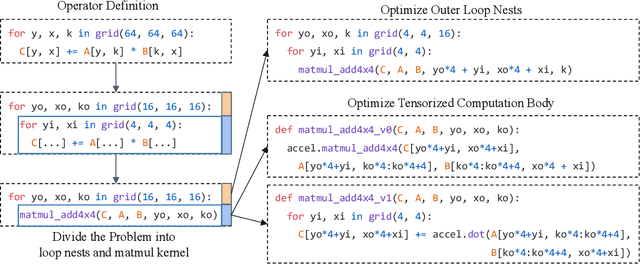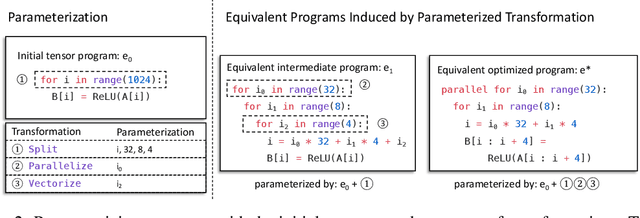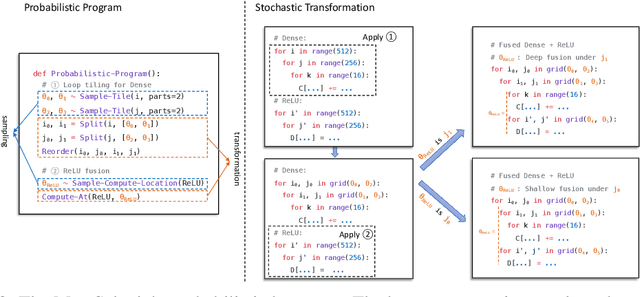Wuwei Lin
Terminal-Bench: Benchmarking Agents on Hard, Realistic Tasks in Command Line Interfaces
Jan 17, 2026Abstract:AI agents may soon become capable of autonomously completing valuable, long-horizon tasks in diverse domains. Current benchmarks either do not measure real-world tasks, or are not sufficiently difficult to meaningfully measure frontier models. To this end, we present Terminal-Bench 2.0: a carefully curated hard benchmark composed of 89 tasks in computer terminal environments inspired by problems from real workflows. Each task features a unique environment, human-written solution, and comprehensive tests for verification. We show that frontier models and agents score less than 65\% on the benchmark and conduct an error analysis to identify areas for model and agent improvement. We publish the dataset and evaluation harness to assist developers and researchers in future work at https://www.tbench.ai/ .
FlashInfer: Efficient and Customizable Attention Engine for LLM Inference Serving
Jan 02, 2025



Abstract:Transformers, driven by attention mechanisms, form the foundation of large language models (LLMs). As these models scale up, efficient GPU attention kernels become essential for high-throughput and low-latency inference. Diverse LLM applications demand flexible and high-performance attention solutions. We present FlashInfer: a customizable and efficient attention engine for LLM serving. FlashInfer tackles KV-cache storage heterogeneity using block-sparse format and composable formats to optimize memory access and reduce redundancy. It also offers a customizable attention template, enabling adaptation to various settings through Just-In-Time (JIT) compilation. Additionally, FlashInfer's load-balanced scheduling algorithm adjusts to dynamism of user requests while maintaining compatibility with CUDAGraph which requires static configuration. FlashInfer have been integrated into leading LLM serving frameworks like SGLang, vLLM and MLC-Engine. Comprehensive kernel-level and end-to-end evaluations demonstrate FlashInfer's ability to significantly boost kernel performance across diverse inference scenarios: compared to state-of-the-art LLM serving solutions, FlashInfer achieve 29-69% inter-token-latency reduction compared to compiler backends for LLM serving benchmark, 28-30% latency reduction for long-context inference, and 13-17% speedup for LLM serving with parallel generation.
Relax: Composable Abstractions for End-to-End Dynamic Machine Learning
Nov 01, 2023



Abstract:Dynamic shape computations have become critical in modern machine learning workloads, especially in emerging large language models. The success of these models has driven demand for deploying them to a diverse set of backend environments. In this paper, we present Relax, a compiler abstraction for optimizing end-to-end dynamic machine learning workloads. Relax introduces first-class symbolic shape annotations to track dynamic shape computations globally across the program. It also introduces a cross-level abstraction that encapsulates computational graphs, loop-level tensor programs, and library calls in a single representation to enable cross-level optimizations. We build an end-to-end compilation framework using the proposed approach to optimize dynamic shape models. Experimental results on large language models show that Relax delivers performance competitive with state-of-the-art hand-optimized systems across platforms and enables deployment of emerging dynamic models to a broader set of environments, including mobile phones, embedded devices, and web browsers.
TensorIR: An Abstraction for Automatic Tensorized Program Optimization
Jul 09, 2022



Abstract:Deploying deep learning models on various devices has become an important topic. The wave of hardware specialization brings a diverse set of acceleration primitives for multi-dimensional tensor computations. These new acceleration primitives, along with the emerging machine learning models, bring tremendous engineering challenges. In this paper, we present TensorIR, a compiler abstraction for optimizing programs with these tensor computation primitives. TensorIR generalizes the loop nest representation used in existing machine learning compilers to bring tensor computation as the first-class citizen. Finally, we build an end-to-end framework on top of our abstraction to automatically optimize deep learning models for given tensor computation primitives. Experimental results show that TensorIR compilation automatically uses the tensor computation primitives for given hardware backends and delivers performance that is competitive to state-of-art hand-optimized systems across platforms.
Tensor Program Optimization with Probabilistic Programs
May 26, 2022



Abstract:Automatic optimization for tensor programs becomes increasingly important as we deploy deep learning in various environments, and efficient optimization relies on a rich search space and effective search. Most existing efforts adopt a search space which lacks the ability to efficiently enable domain experts to grow the search space. This paper introduces MetaSchedule, a domain-specific probabilistic programming language abstraction to construct a rich search space of tensor programs. Our abstraction allows domain experts to analyze the program, and easily propose stochastic choices in a modular way to compose program transformation accordingly. We also build an end-to-end learning-driven framework to find an optimized program for a given search space. Experimental results show that MetaSchedule can cover the search space used in the state-of-the-art tensor program optimization frameworks in a modular way. Additionally, it empowers domain experts to conveniently grow the search space and modularly enhance the system, which brings 48% speedup on end-to-end deep learning workloads.
Recurrent Residual Module for Fast Inference in Videos
Feb 27, 2018



Abstract:Deep convolutional neural networks (CNNs) have made impressive progress in many video recognition tasks such as video pose estimation and video object detection. However, CNN inference on video is computationally expensive due to processing dense frames individually. In this work, we propose a framework called Recurrent Residual Module (RRM) to accelerate the CNN inference for video recognition tasks. This framework has a novel design of using the similarity of the intermediate feature maps of two consecutive frames, to largely reduce the redundant computation. One unique property of the proposed method compared to previous work is that feature maps of each frame are precisely computed. The experiments show that, while maintaining the similar recognition performance, our RRM yields averagely 2x acceleration on the commonly used CNNs such as AlexNet, ResNet, deep compression model (thus 8-12x faster than the original dense models using the efficient inference engine), and impressively 9x acceleration on some binary networks such as XNOR-Nets (thus 500x faster than the original model). We further verify the effectiveness of the RRM on speeding up CNNs for video pose estimation and video object detection.
 Add to Chrome
Add to Chrome Add to Firefox
Add to Firefox Add to Edge
Add to Edge